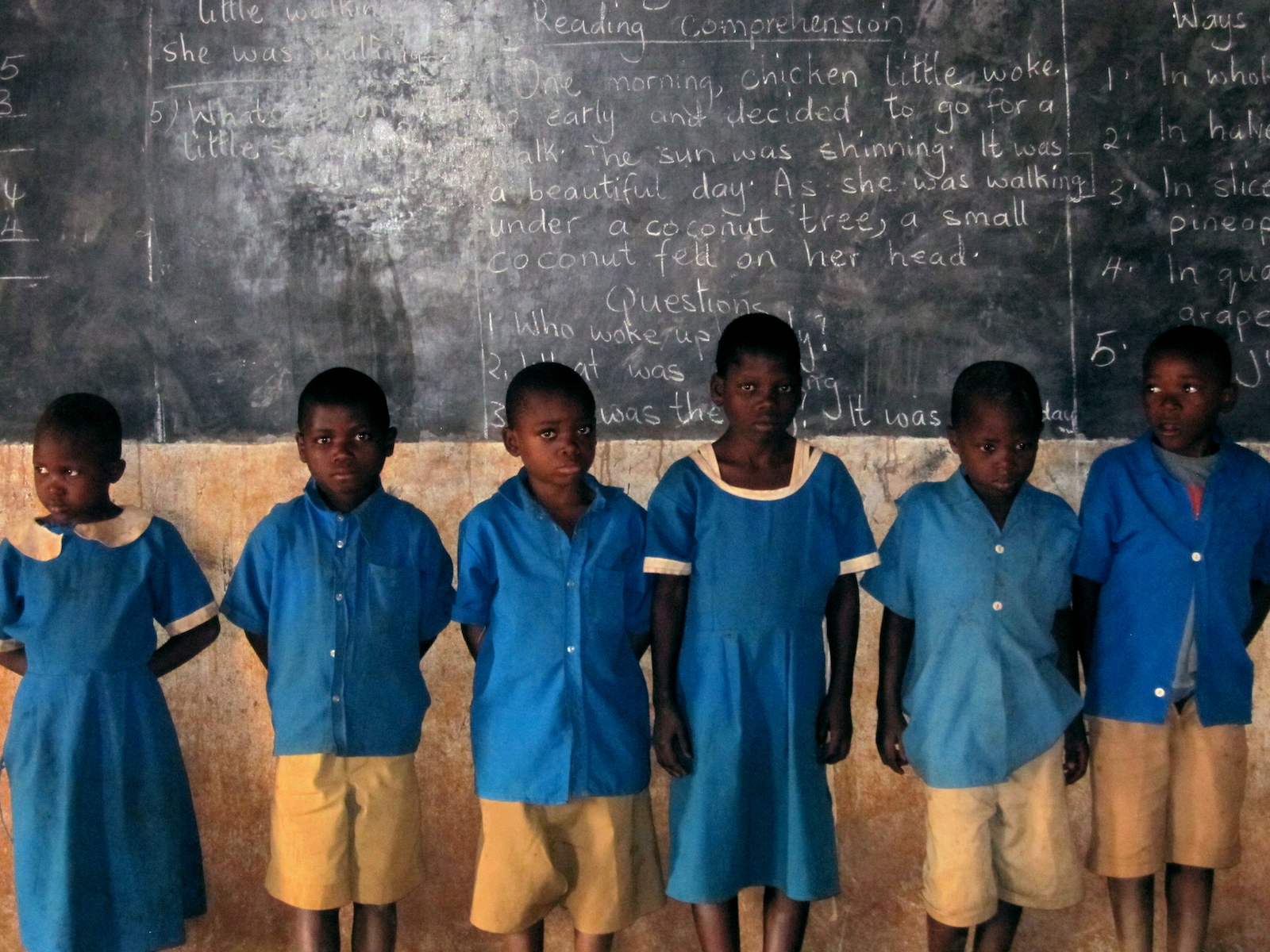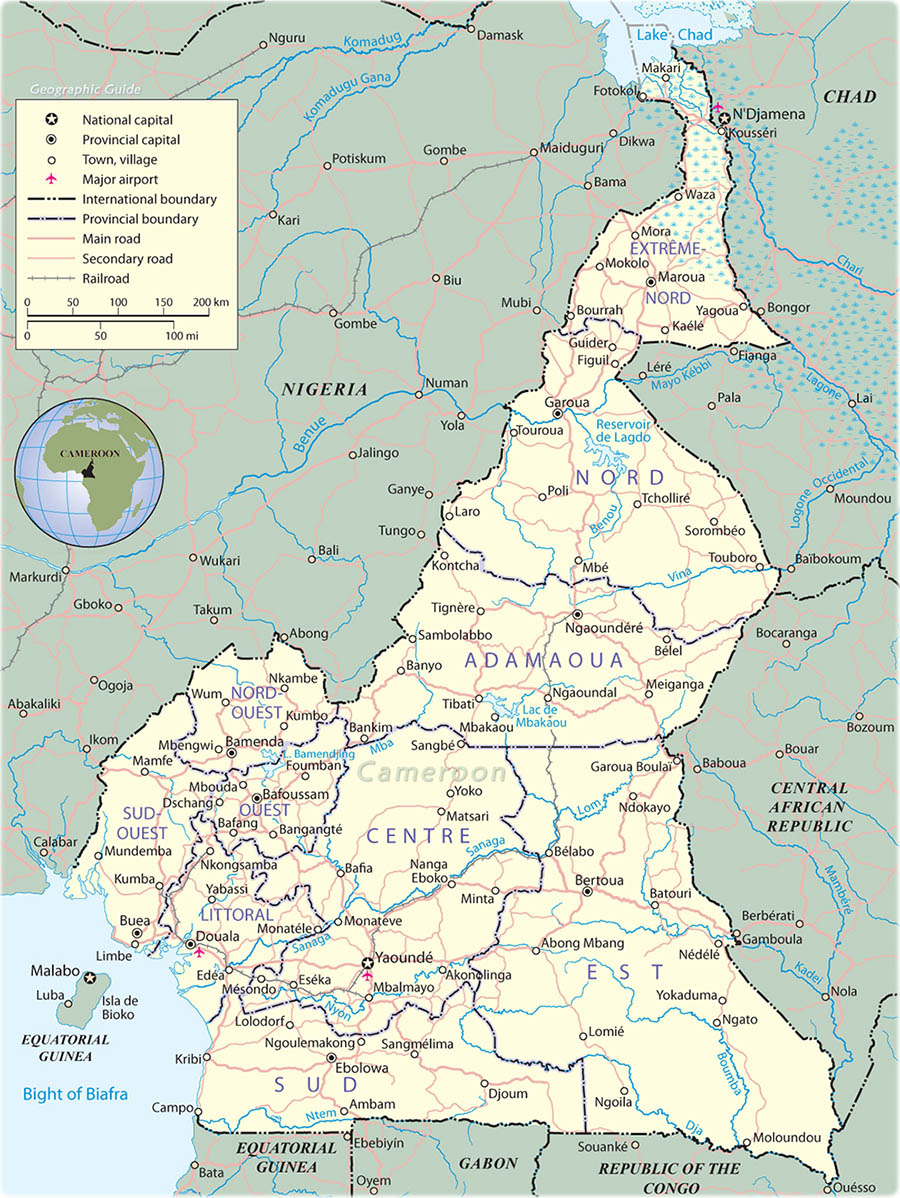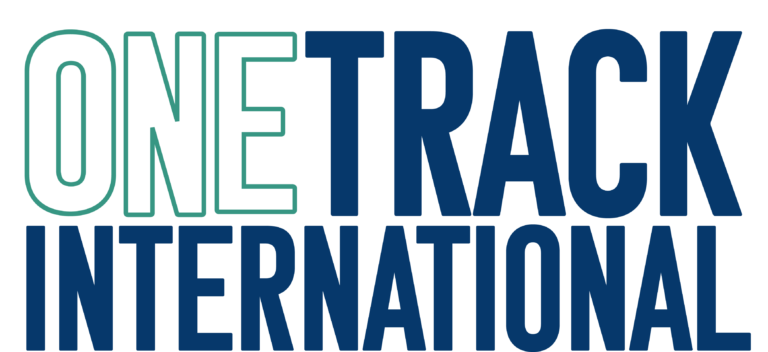
CAMEROON
__________________
CameroonONE’s In-Home Sponsorship Program
According to international laws and standards, including The Hague Adoption Convention, orphaned children are supposed to be reunited with extended family members at a local level. In cases where no capable family members can be found, then homes should be made available to them within their community of birth. In the event that all these options are exhausted, then (and only then) should international adoption become an option. However, these principles are routinely ignored or flouted around the world. CameroonONE’s mission is to promote these expectations of international law; we recognize the reasons why they initially became standards- to keep the family together and strengthen the ties of community, to maintain cultural traditions and a bond between the citizen and one’s heritage, to make certain that the children truly in need of international adoption get it, and to protect villages from losing future generations and the benefits that come with their innovation, productive lives and creativity. Orphanages serve an important purpose for the parentless children of this world, but they should be reserved for the worst cases- a space for those without other options. The gap that CameroonONE addresses is to relieve the overcrowded and underfunded orphanages of children who do not belong in them, while simultaneously reuniting the family by placing children in the households of surviving family members and ensuring their educations and healthy lives.
To date there exists in Cameroon no credible or efficient foster care system to provide for the parentless children orphaned by HIV/AIDS, tuberculosis, malaria, and other ill-fated circumstances. According to UNICEF statistics, there are currently 1,300,000 Cameroonian children who no longer have biological parents.

The most fortunate are housed in collective shelters and schooled in self-operated communes. Others are placed in the care of elderly guardians, who, surviving solely by subsistence farming, can barely afford to provide these children with their basic needs, let alone the costs of a proper education. Some have been reported to be the victims of human and sex traffic and some the sufferers of organ exploitation. Others still are on their own and fending for themselves–the ideal formula for destitution and criminal activity.
There is a need to reassess the current methods in practice and address the orphan situation through a different approach- the solution is not simply to confine these children to the peripheries of society! Most of those who are raised in this system find that after primary school they are alone and unemployable. Many do not even receive a basic education in the first place. Tragically, many of these children still have caring family members who are simply incapable of financially adding another person to their household. Indeed, some have been placed in their orphanages by single parents who feel that the missions can better support them. In order to confront this crisis, the support needs to be focused toward family-preservation efforts that strengthen the family unit and allow surviving relatives who are willing to assume the role of guardian care for the own nieces and nephews.
CameroonONE has developed a program to confront the current orphan crisis within Cameroon. Our team has established the first In-Home Child Sponsorship program on the continent that has been designed to support both an orphaned child as well as his or her surviving relatives with the goal of keeping families together while relieving the orphan communes of unnecessary cases. The children in our In-Home Sponsorship program are placed in the existing households of their extended family members, who partner with CameroonONE by taking on the parental responsibilities of a niece or nephew. Families do so on a conditional basis and each household receives PTA school fees, medical assistance, school supplies, uniforms, text books, shoes, as well as rice, seeds, cooking oil and other essentials of Cameroonian daily life, and a small family stipend. Host families that accept this responsibility do so with the full understanding that it will be conditional and made available only as certain requirements of the child’s rearing are met. These stipulations include that the child attend a decent school and maintain certain expectations in their evaluations, and that he or she is fully vaccinated and receives whatever healthcare that may be specific to their personal needs.
It is important that the international community begins to consider the wider advantages that supporting an orphaned child’s surviving relatives will bring and the benefits of practicing family-preservation through caretaker support, ensuring food and health security, advancing access to education, and by providing identification support to register undocumented children to ensure that they are less vulnerable to the threats of statelessness. This project can both reduce short-term poverty by directly providing a partial income to the impoverished and those most in need and ultimately fight long-term poverty by creating a more productive and competent future human capital among parentless children who may have otherwise received little or no education.
The In-Home Sponsorship program is a pro-poverty alleviation project in line with the United Nations Millennium Development Goals to reduce hunger and poverty, achieve universal education and reduce child mortality intended as a model to be applied throughout the continent. It also observes the Convention of the Rights of the Child, UN Declaration on the Protection and Welfare of Children, and The Hague Adoption Convention which all support the belief that international adoption should be considered as an option only if other arrangements (with priority to kin and adoptive families) cannot satisfactorily be arranged for the child in her or his country of origin (otherwise known as the Principle of Subsidiarity between national and international adoption).


